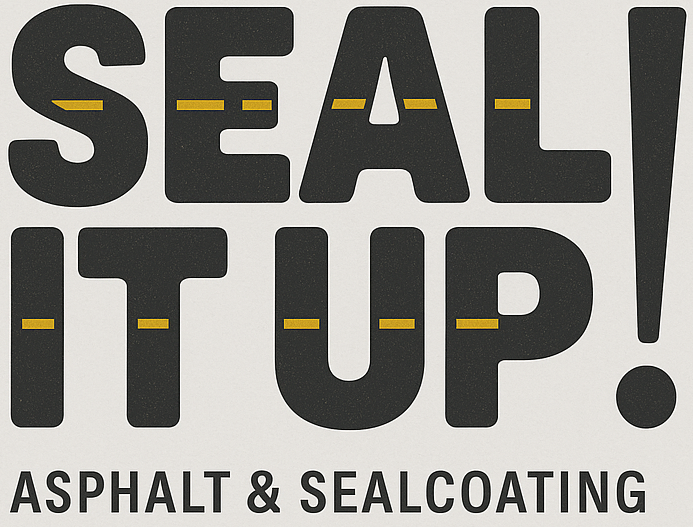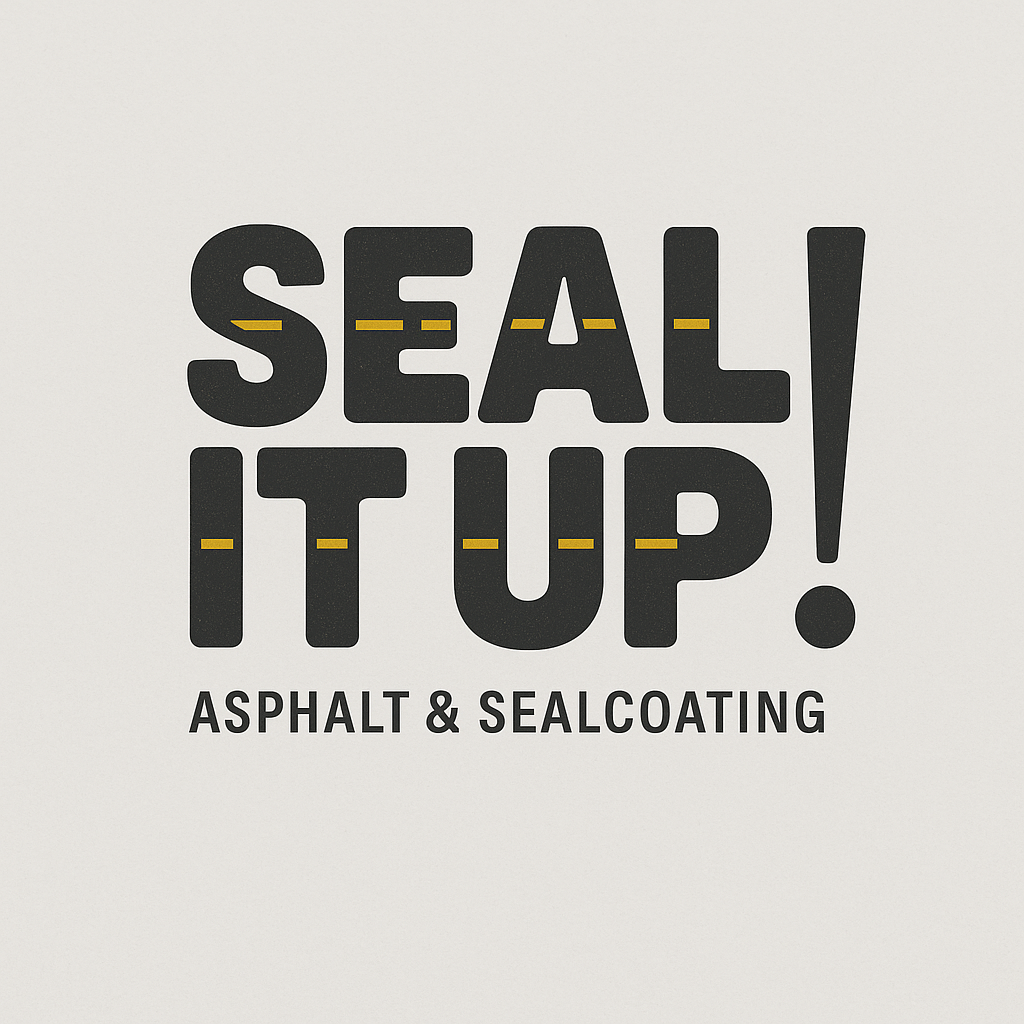Sealcoating vs. Repaving: The Smart Money Move in Hot, Dry Climates
When your driveway lives under intense sun and low humidity, it ages differently. The surface fades from deep black to gray, hairline cracks appear, and the asphalt starts to feel brittle. The big question becomes: will sealcoating protect it, or is repaving the better investment? Let’s break down what saves more money in hot, dry conditions.

How Dry Heat Ages Asphalt
UV rays and heat drive oxidation—the binder in asphalt loses its oils, turning hard and inflexible. That leads to:
- Color fade and raveling: The surface dries out and sheds fine aggregate.
- Thermal and block cracking: Repeated heating and cooling causes small cracks to spread like a spiderweb.
Premature brittleness: Without moisture in the air, the pavement loses flexibility and cracks under normal loads.
What Sealcoating Actually Does in the Heat
Sealcoating is a protective top layer that keeps your driveway from baking to death in the sun.
Blocks UV and Slows Oxidation
Sealcoat acts like sunscreen, shielding the binder from direct UV exposure so it doesn’t dry and turn brittle as quickly.
Restores a Tight, Smooth Surface
A fresh coat fills micro-voids, helps lock in fines, and refreshes that dark finish. This reduces raveling and keeps the surface dense and easier to clean.
Seals Hairline Cracks Before They Grow
Paired with professional crack sealing for wider openings, sealcoating limits how far heat-driven cracks can spread—protecting the base below.
When Repaving Becomes the Right Call
Sealcoating is maintenance, not a miracle cure. Choose repaving if you see:
- Alligator cracking: Interlaced cracks that signal structural fatigue.
- Widespread raveling and loosened aggregate: The surface has lost integrity.
Significant low areas or base failure:
Even in dry regions, traffic and time can weaken the base.
At this point, resurfacing or full-depth replacement is more cost-effective than layering more sealer on a failing structure.
The Cost-of-Ownership Logic in Dry Climates
Most homeowners spend far less over a 10–15 year window by following a maintenance rhythm instead of waiting for a full replacement.
- Routine plan: Annual crack sealing + sealcoating every 24–36 months.
- Benefit: Slows oxidation, controls cracking, and delays major work.
Outcome: You push repaving years down the road, smoothing out expenses instead of taking a budget hit all at once.
Quick Self-Assessment Checklist
Use this to decide your next step:
- Mostly cosmetic issues? Fading color, light surface wear →
Sealcoat.
- Tight hairline cracks, minimal raveling? Crack seal + sealcoat →
Maintain and monitor.
- Multiple connected cracks, rough texture, loose stones? Spot patching + crack seal + sealcoat →
May buy time, but plan for future resurfacing.
Deep cracks, sun-baked brittleness across large areas, uneven sections? →
Repave or resurface.
Why Sealcoating Wins in Hot, Dry Regions
- Targets the main threat (UV/oxidation). You’re solving the problem that actually causes the most damage in arid settings.
- Keeps the surface cooler and tighter. A dense, dark surface resists further drying and looks better.
Budget-friendly protection. Smaller, planned maintenance beats surprise replacement.
Pro Tips for Maximum Value
- Fix cracks first. Hot rubberized crack sealant prevents openings from spreading in the heat.
- Mind the schedule. Don’t wait for deep cracking—recoat on time.
Use professional application. Squeegee/spray methods deliver even coverage and the right thickness for your climate.
Bottom Line
In hot, dry climates, sealcoating paired with timely crack repair is the best money saver for most homeowners. Repaving has its place, but with regular protection against UV and heat, you’ll delay that big expense for years.
Keep Your Driveway Cooler, Darker, and Stronger
Ready to extend the life of your asphalt and avoid costly replacement? Schedule professional sealcoating with Seal It Up! today. We’ll assess your driveway, repair cracks, and apply a climate-appropriate sealer that fights UV damage and keeps your surface looking sharp.

